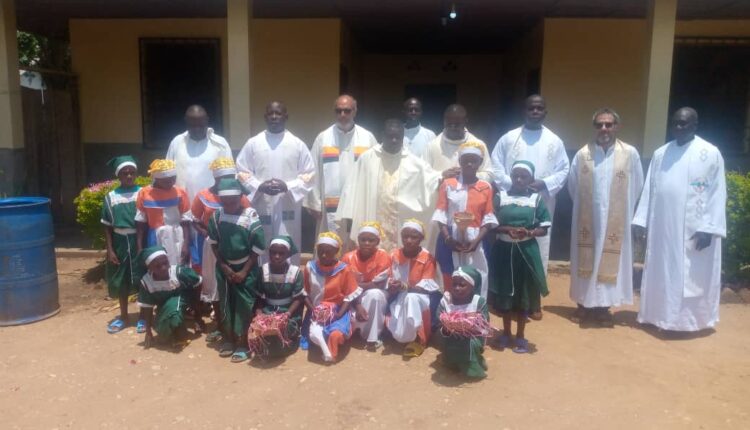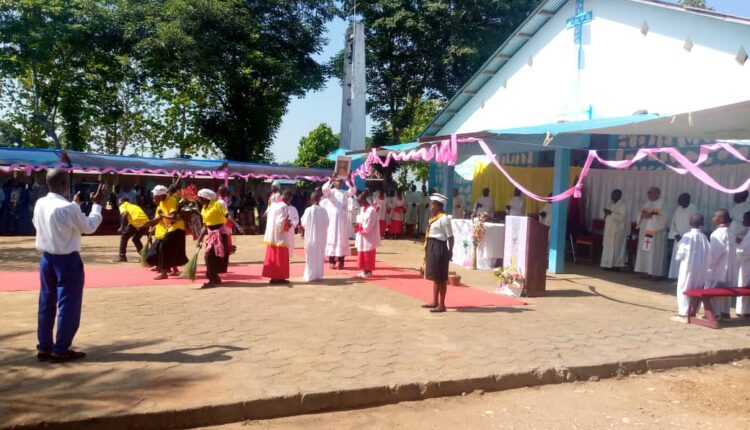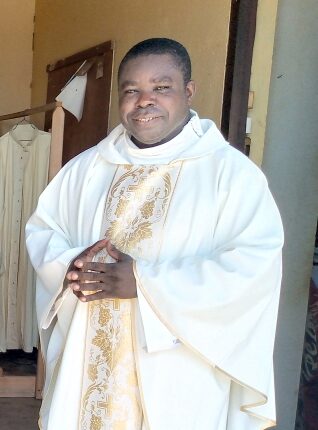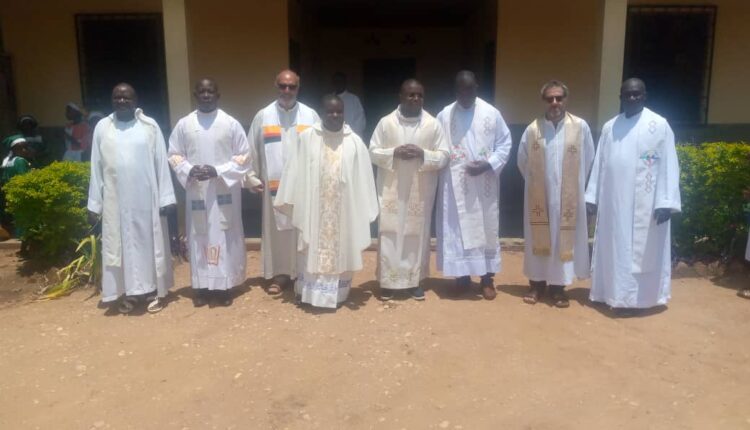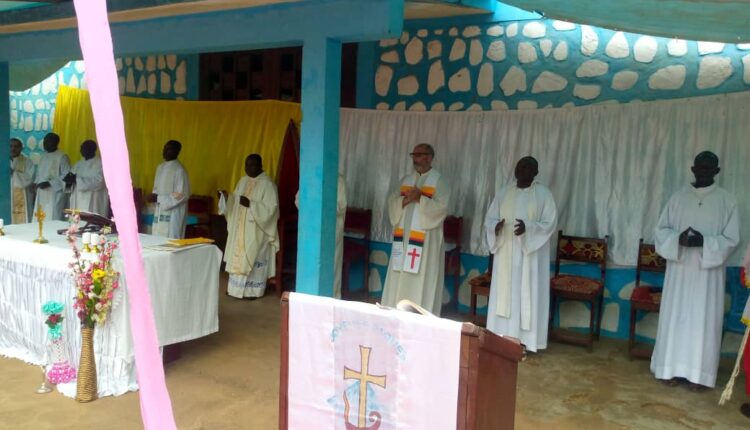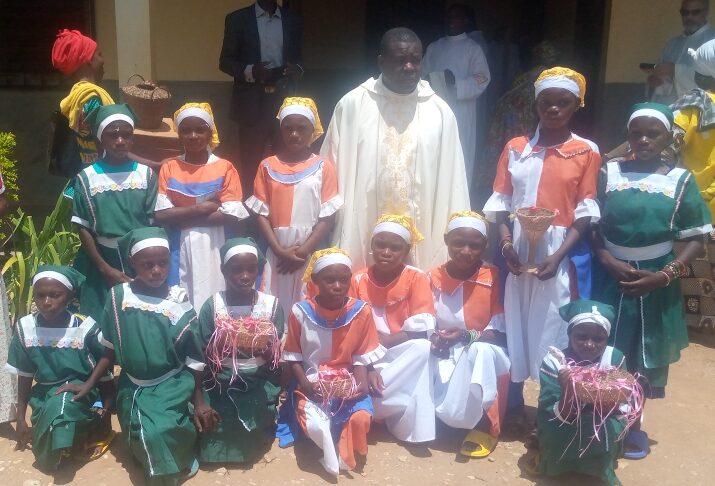
Diocese of Berbérati: a commitment to the Works of Mercy
Co-responsibility between priests and laypeople in the Sud-Nola deanery (Diocese of Berbérati, Central African Republic)
In the heart of the Diocese of Berbérati, in the Sud-Nola deanery, an evaluation session was held on the theme of lay and priest co-responsibility, marking a significant moment in the spiritual and community life of the faithful. The session brought together 167 participants from 8 parishes in the deanery, 12 priests and 2 nuns. At the closing Mass, Abbé Eric (Curé Doyen) delivered an inspiring homily, highlighting the fundamental values of co-responsibility and charitable action through works of mercy.
The Central African Republic is bordered to the north by Chad, to the east by Sudan, to the south by the Democratic Republic of Congo and to the west by Cameroon. It has nine dioceses, including: Bangui, Berbérati, Bouar, Kaga-Bandoro, Bangassou, Bambari, Bossangoa, Alindao and Mbaiki.
The Sud-Nola (Berbérati) deanery comprises 8 parishes. It is one of four deaneries in the Berberati diocese, along with the Centre, Nord and Ouest deaneries. Following the Bishop’s instructions at the end of the diocesan pastoral session in November 2023, each deanery must organize a session to evaluate the year’s theme.
At the start of the pastoral year, the Bishop of Berberati gave the theme for the whole diocese: “Co-responsibility between priests and lay faithful”. During the session, this theme was presented by a layman, Christian Patrick Bakambo. He began by defining responsibility, which is nothing other than what you have been entrusted to manage, and for which you must be accountable afterwards.
In a world marked by growing economic challenges, the need for accountability between laity and clergy is becoming ever more pressing. It’s also proof of the synodality that the Church and Pope Francis want to see in the Christian community. The Church, as a body of believers, is called to respond to the needs of those who suffer, to be a source of comfort and hope for the most vulnerable in society.
It was in this spirit that Abbé Eric directed his words calling for collective action to serve with dignity and compassion. He emphasized that the works of mercy, rooted in Christian teaching, represent a valuable guide to living out co-responsibility in the community. By committing themselves to feed the hungry, give drink to the thirsty, clothe the ill-clothed, visit the sick and the imprisoned, the faithful respond to the Gospel’s call to love and serve their neighbor.
He went on to speak of co-responsibility in the family, underlining everyone’s role in society. A responsibility to be exercised as lay Christians, priests and nuns in frank and fraternal collaboration for the same goal. Co-responsibility transcends traditional roles within the Church, recognizing that every baptized person has a vital role to play in the Church’s mission. By working together, sharing their talents and resources, the faithful can have a transformative impact on their community and the world around them.
The call to co-responsibility also requires listening attentively to the needs and sufferings of others. Hence the importance of remaining sensitive to the realities of those who are marginalized or excluded, and of acting with empathy and respect towards everyone. By embodying these values in everyday life, Christians bear witness to God’s loving presence.
During the three days of sessions, there was time for crossroads work and pooling of results, as well as sharing of pastoral experiences by parishes, and cultural evenings to discover the talents of our Bayaka (Pygmy) brothers and sisters.
The closing mass of the evaluation session was presided over by the Curé Doyen, Abbé Eric Nguilo-Abo, in the presence of the civil authorities of the town of Nola and the surrounding area, who came to attend the event. The mass marked the start of a new chapter in the spiritual life of the Sud-Nola deanery. By committing themselves to living co-responsibility in a profound and authentic way, the faithful are called to become agents of transformation and hope in their community.
Under sunny skies, the session came to an end, after a fraternal agape and a sharing of food to the needy in the 10 basic ecclesial communities.
Father Eric is committed to bringing OPERAM = the reEvolution of the Works of Mercy to his parish and diocese of Berberati.
From Berberati
Abbé Eric Nguilo-Abo (Curé Doyen Sud-Nola)
Photo
- Abbé Eric Nguilo-Abo

